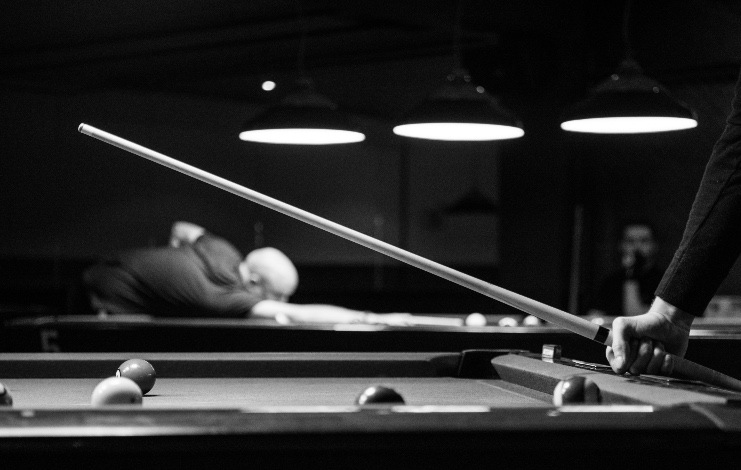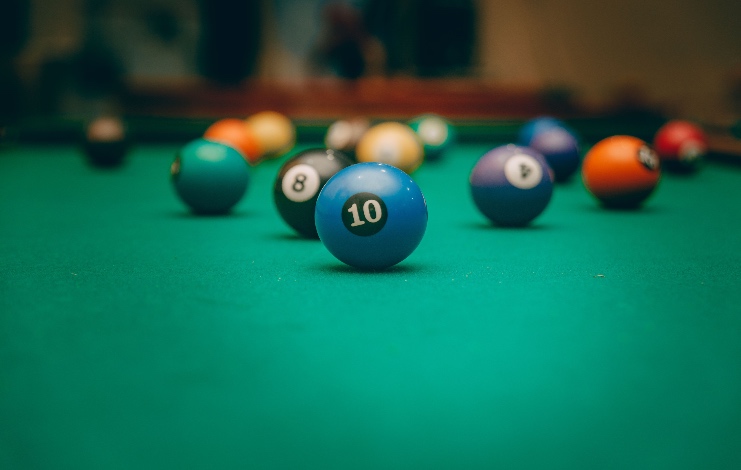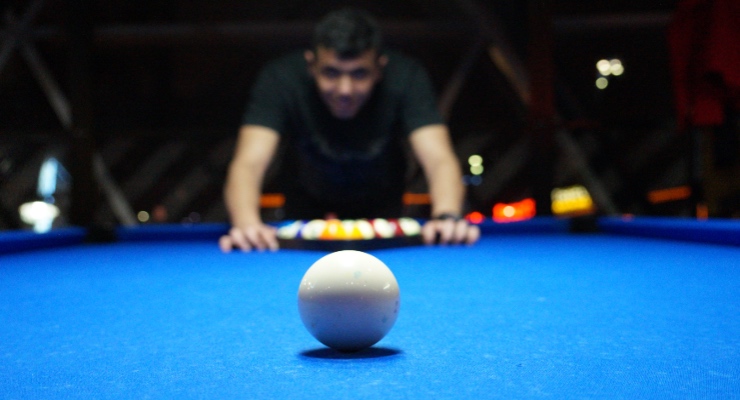With such a large selection of Pool Cue Sticks to choose from, selecting one that is right for your needs is challenging. Fortunately, we’ve compiled a pool cue buying guide that highlights the essential tips you need t to choose the right pool cue.
Pool Cue Length
The first factor to consider when purchasing a pool cue is the length or rather a size. Ordinarily, the standard pool cue length is 58 inches, and this cue is a suitable option for players between 5’8 to 6’5. However, for players taller than the specified height mentioned above, they need a special cue that is up to 61 inches long.
Kids or users below the average height should opt for a 48” or 52” cue. While at it, it is crucial that you ensure the cue is straight, especially when selecting a two-piece cue.

Weight
On average, the weight of a cue ranges between 17 to 21 ounces and the ideal weight is quite subjective because it depends on the comfort level.
If you are short, a lighter cue is ideal because it will save you from the hassle of lowering the butt and raising the cue’s tip when taking a shot. Nonetheless, we recommend beginners to start with a 19-ounce cue and adjust later if they need to.
Be as it may, pro players are quite picky when it comes to picking the weight of their cue and pick a weight depending on how it will favor their shots. For instance, a heavy cue is ideal for breaking shots, while lighter cues are preferred for skill shots.
Wrap Type
Wrap type is the material that covers the cue. It’s a crucial component because your hands will always be in constant contact with the wrap when taking a shot.
Some of the popular wrap materials include:
- Leather: It is a popular and preferred option and is ideal for anyone looking for a super hard cue. It’s particularly handy for those who sweat a lot as it can absorb a good amount of liquid.
- Rubber: It offers better traction, though it wears out fast and will ultimately become slippery.
While there’re plenty of other materials out there, it’s critical that you avoid bare wood or fiberglass because they don’t offer a grip and will often slip after a bit of use.
Cue Tip
The cue tip is the part of the cue that makes contact with the ball. It’s, therefore, necessary to choose a tip that will support your style of play.
There are three popular types of cue tips, and they include:
Soft Tips
Soft tips usually compressed during impact with the ball, and the extra split second lets you have better control and accuracy of your shot. On the downside, soft tips require users to hit the ball with a greater force, which might compromise the accuracy and control.
Also, the soft tips tend to wear out easily, but they’re ideal for the seasoned players who usually put a lot of spin on the ball.

Hard Tips
Hard tips are explicitly built for breaking or jumping. Unlike the soft tips, these units usually transfer maximum energy to the ball.
A tradeoff to this is that the hard tips aren’t good for spin shots, and are difficult to control and less forgiving. Though many professional players prefer hard tips, it usually takes years of perfecting this skill, and I would not advise starters to use the hard tips.
Medium Tips
The medium tips, also known as medium-hard tips, are a great compromise between the soft and hard tips. Most of the cues usually come with medium tips, and it’s for a good reason.
These tips usually offer a fine balance of consistency, controllability, and speed. Unlike the soft tips, medium tips are easy to maintain and do not mushroom easily.
In my opinion, if you’re just starting, start with a medium tip cue, and as your play progresses, you choose either between a soft and hard tip, depending on your preference.
Cost
Typically, decent pool sticks range in between $100 to $150. While there are plenty of other inexpensive modes, I would really recommend choosing anything below $80. At this price point, the tradeoff for overall quality isn’t worth it.
However, there is an exception to the beginner or casual player cues. Most of these cues are on the lower side of the price point, which is fine because when starting, you really don’t need to purchase premium and advanced models.



